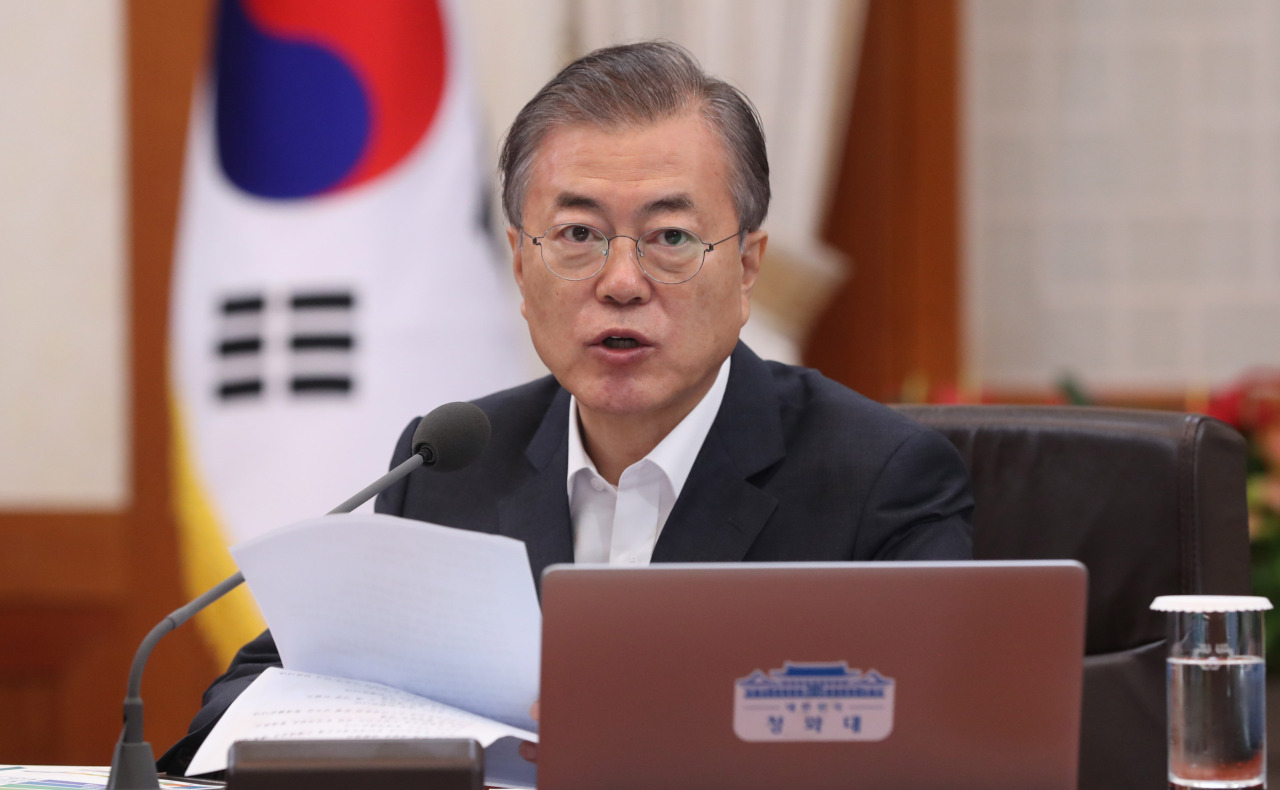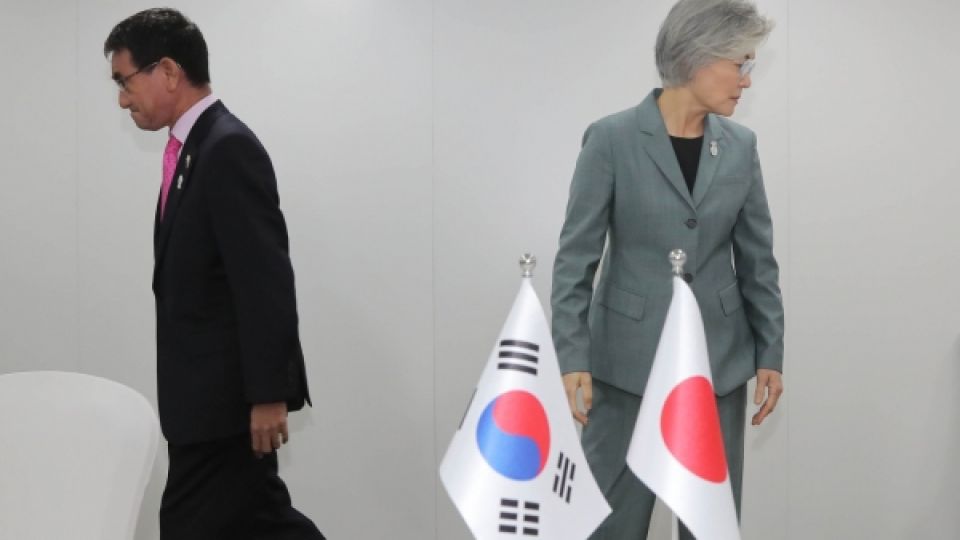August 30, 2019
The diplomatic and economic spat between the two countries looks far from over.
President Moon Jae-in on Thursday renewed his criticism of the Japanese government, calling on Tokyo to face history, returning to his earlier hard-line stance after weeks of calling for dialogue.
 |
“Japan must be honest. Japan has yet to even state an honest reason for its economic retaliation. The Japanese government is trying to rationalize its economic retaliation by baselessly shifting its rhetoric as frequently as necessary,” Moon said, referring to Tokyo’s removal of South Korea from its list of trusted trade partners the previous day.
“No matter what excuse it invokes as justification, it is clear that the Japanese government has linked historical issues to economic matters. I have no other choice but to point out that its attitude is very disingenuous.”
On Wednesday, Tokyo excluded South Korea from its list of trusted trade partners, having rejected Seoul’s calls for dialogue and disregarded hints that Seoul’s decision on the General Security of Military Information Agreement could be changed if Tokyo were to retract its trade restrictions.
Although Japan has made a number of claims to justify its measures — including suggestions that South Korea poses a security risk and is failing to control the flow of strategic materials into North Korea — Seoul interprets Tokyo’s moves as retaliation for the Supreme Court’s rulings on forced labor cases.
Moon went on to highlight Japan’s attitude toward its wartime actions, accusing the Japanese government of distorting history.
“It is an immutable fact that Japan was the perpetrator behind unfortunate chapters of history not only in Korea but also in many other Asian countries,” Moon said.
“The attitude of the Japanese government, which neither acknowledges nor repents its past wrongdoings but rather distorts history, only aggravates the wounds and anguish of the victims. Its preposterous claim to Dokdo — the first part of our territory to fall victim to imperial Japan’s aggression — remains unchanged to this day.”
Moon’s resumption of his direct criticism of Tokyo follows weeks of hints from top South Korean officials that Seoul was willing to engage in dialogue, and to reverse its decision about GSOMIA.
On Aug. 22 Seoul announced plans to forgo the renewal of GSOMIA, saying Japan’s trade restrictions had altered the security cooperation environment between the two countries.
Since then, top officials including Prime Minister Lee Nak-yon have urged Japan to reconsider removing South Korea from the whitelist, saying that doing so might lead Seoul to review its decision on GSOMIA. With Seoul having decided not to renew the agreement, GSOMIA will expire Nov. 23.
The decision to terminate the military intelligence-sharing pact has been met with criticism from the US. Officials from both the US Department of State and the Pentagon have issued statements expressing concerns over Seoul’s decision. US officials have since expressed disappointment in both Seoul and Tokyo, saying they hope its two Asian allies can resolve the situation.
However, neither side appears willing to cede any ground.
At Thursday’s Cabinet meeting, Moon once again stressed that the country must turn the situation into an opportunity and vowed countermeasures against Japan.
“Our government has already put in place fallback plans from various perspectives. We will thoroughly implement the measures that have been prepared to minimize damage to our economy and businesses,” Moon said.
“Crucially, we will take this as an opportunity to catapult the Korean economy to a new level by enhancing the competitiveness of manufacturing and other industries. We will also, as a sovereign state, resolutely take steps to respond to Japan’s unwarranted economic retaliation.”
Japan is also showing no signs of any change in stance.
“The biggest problem in Korea-Japan relations today is the issue of laborers from the Korean Peninsula, therefore we will continue to strongly urge Korea to resolve the situation in which international law has been violated by (the South Korean) Supreme Court’s rulings,” Yoshihide Suga, Japan’s chief Cabinet secretary, said Thursday.
Suga was referring to Japan’s claim that all compensation and damages owed to South Koreans who suffered harm during Japan’s occupation of the Korean Peninsula were settled through a 1965 treaty that normalized relations between the two countries.


